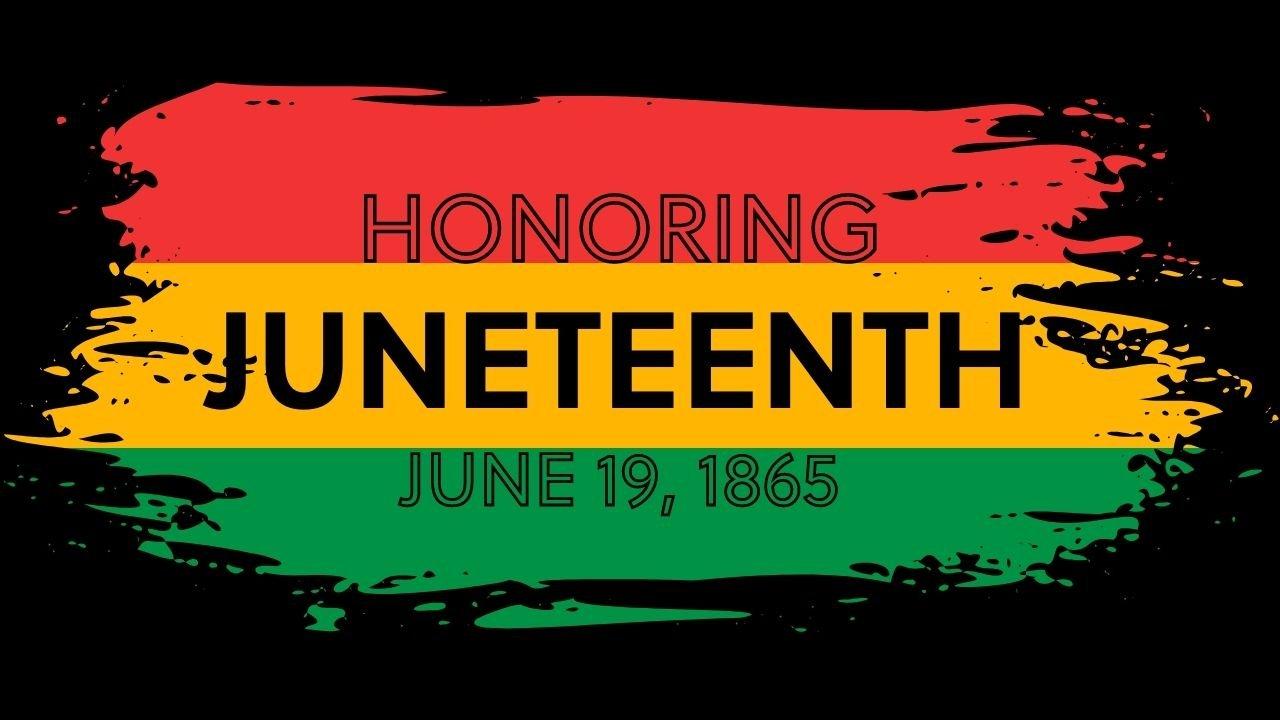
Mar 2, 2026
What is Upscale Apparel? Learn about the bold streetwear brand taking over youth fashion with high-impact graphics and urban style at Hibbett.
Jun 16, 2022
While former slaves in Northern territories had been legally free since January 1863, enslaved African Americans in Southern states were unaware of their freedom. That changed on June 19, 1865, or Juneteenth, when news of the Civil War’s end and the passing of the Emancipation Proclamation finally reached Galveston, Texas. This day marked independence for African Americans in the United States.
Juneteenth is a national celebration of the end of slavery, providing a consistent reminder to cultivate…commemorate…and educate.
To celebrate Juneteenth 2022, students from renowned Birmingham, Alabama, HBCU Miles College spoke with Hibbett | City Gear about the value they place on education and what it means to them to have the opportunity to pursue higher education thanks to the people and events leading up to and after June 19, 1865.
The Colored Methodist Episcopal Church, now known as The Christian Methodist Episcopal Church, founded Miles College in 1898. Founding members saw a critical need for educated leaders and voices in the Black Community, a major pillar of the institution’s mission even today. Miles College’s faculty is dedicated to mentoring and teaching students to feel intellectually and civically empowered through education.
Specifically, “students [of Miles College] are transformed through rigorous study, scholarly inquiry, and spiritual awareness, thereby enabling graduates to become responsible citizens who help shape the global society.”
Future Miles College graduates Raquel Liverpool, Jeremy Turner, Jessica Harris, and Blake Speed are poised to do just that.
Jessica Harris was accepted to more than 50 Historically Black Colleges and Universities throughout the country in her search for where she would continue her education after high school. As she tells it, Miles College chose her before she chose Miles College.

At the height of the COVID-19 pandemic, travel restrictions and school closures prevented many prospective students, like Jessica, from meeting faculty, touring, and getting a sense of campus culture at the colleges and universities of choice prior to committing to enrollment.
Miles was on Jessica’s list of acceptances, and she took the college’s willingness to host her for a campus visit before the start of the new academic year as a sign that Miles was not just a school but a community committed to their students. She knew it was exactly where she was supposed to be.
In speaking with her, it’s clear that Jessica has no regrets in choosing Miles as her Alma Mater.
“At one point, African American people couldn’t get an education; they were denied. They weren’t even allowed to read and write. We were just seen as property,” Jessica said on why she values being part of an HBCU family and the unique education provided there.
“…To me personally, pursuing higher education is important because education really is a way for social mobility in our country right now. Being able to help others and to help myself really comes from the roots of education …[Miles College] produces lawyers; we produce doctors, we produce scientists that are willing to be game changers in the country… knowing that I have the accessibility to be with people who look like me, who have been in places like me… inspires me to do better.”
For Jeremy Turner, a first-generation college student from Los Angeles, Miles College, and Juneteenth both represent opportunity.

At age 17, Jeremy’s plans for college were undecided until a friend and Miles college student from his home town asked a simple question, “what’s your purpose?” This one question inspired Jeremy to relocate from LA to Birmingham in pursuit of a career in communications.
Jeremy is the youngest of seven brothers, many of whom never finished their high school educations. His own pursuit of higher education at an HBCU is for those brothers who helped raise him. “[I’m] showing them that all the work they put in, the sleepless nights — it wasn’t done in vain. It was for something bigger and greater, which is me,” said Jeremy.
“I am Black History,” Jeremy also stated,” … Juneteenth is important, as well as special to me because it represents the strength, endurance, and solidarity of our people.”
Jeremy will graduate from Miles College this year, a milestone he is able to reach because of those who came before him.
“HBCUs, like Miles College, are unique because they are stepping stones to Black excellence,” Jeremy said. “They were made for us… built by us, they were made in the cities we were put in, like the ghettos and the burrows. This is our heritage.”
Post graduation, Jeremy aspires to someday start a scholarship fund to give back to the school that gave him so much more than a textbook education.

One thing Miles College teaches students that cannot be found in a book is how students can take their education and futures into their own hands. According to biology student Blake Speed, this specific skill set predominantly defines the Black community.
He explained that Black culture is defined by the word ‘autodidactic,’ meaning that historically, African Americans have expanded their intellectual horizons through self-teaching rather than formal education.
“Receiving this education is a true blessing,” Blake said as he spoke about the hardships faced by his ancestors in their own battles for accessibility to education. “Our ancestors… did so much for us for us to get an education, for us to walk anywhere we want, go anywhere we want without hesitation… [They] never got the opportunity to become great; they are just remembered for doing things that were great.”
But as a result of their actions, Blake is able to achieve greatness for himself. After completing his degree in biology, Blake intends to enter the medical field, where he can potentially help fill gaps in Black representation in the industry. He hopes that by becoming a medical professional, like a doctor, he can inspire younger generations to pursue similar positions of power someday.

Raquel Liverpool is part of a younger generation who grew up with aspirations of representing the Black community on a major playing field.
The political science major has her sights set on a career as an Air Force JAG (attorney,) a rank practically unreachable by African American women until 1974 when Savella Jackson became the first Black woman to be commissioned in the JAG Corps.
With the opportunities before her now, Raquel cherishes her accessibility to education and everything it took to get her here.
“Accessibility to education, it means a lot to me — coming from, you know in history, we never received an education, we weren’t able to do many things that others were able to do. We weren’t offered the same material; we weren’t offered the same experiences,” Raquel said. “…Now I am able to have an education wherever I go — It feels like I am finally being accepted somewhere, and that I actually matter.”
For Raquel, Juneteenth and what it symbolizes makes her feel honored that she is able to represent her community. She says the holiday commemorates the ending of slavery but also reinforces that the Black community does have a voice and that Black America does have a future.
Today and every day, Hibbett | City Gear honors Juneteenth and the Black community – past, present, and future.
